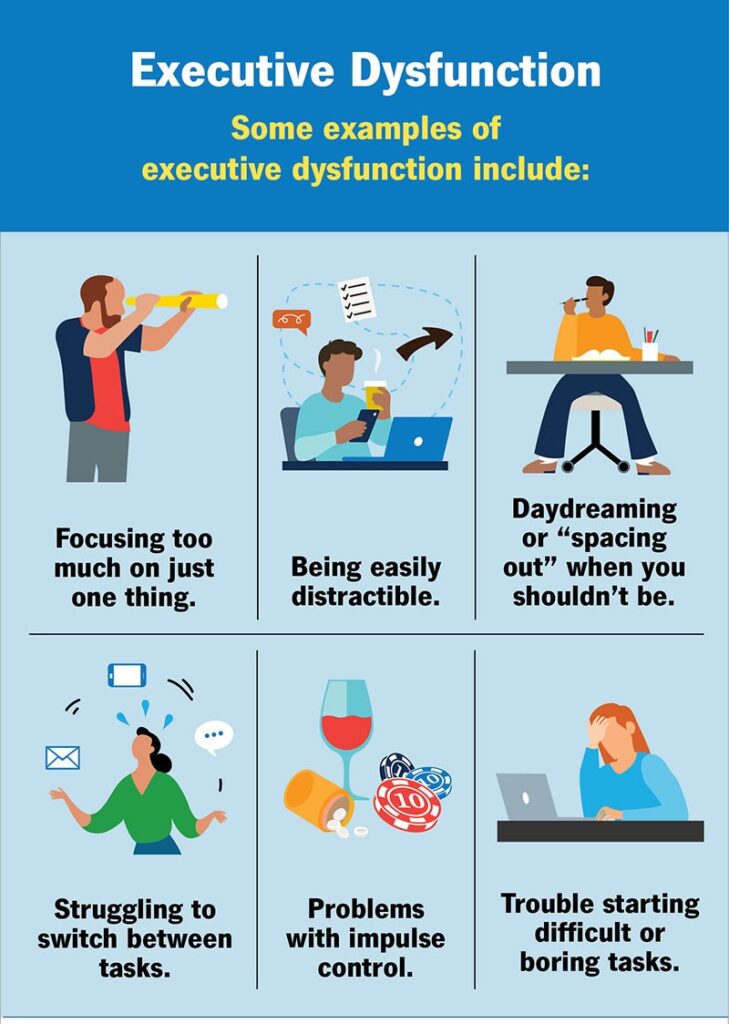AuDHD is a type of neurodivergence which combines Autism and ADHD. Researchers are discovering it is more common than once thought. It’s now estimated that 50 to 70% of autistic individuals also have ADHD (1), which makes them AuDHD. Let’s look at some struggles and strategies for people with AuDHD.
10. Loneliness and Isolation
Feelings of alienation arise from:
Difficulty connecting: Struggles with social skills, fear of rejection, and masking contribute to isolation.
Lack of understanding: Neurodivergent traits often make individuals feel like outsiders, even among family or friends. Desire for community: Many long for spaces where they can be accepted without judgment but find these hard to come by.
Strategies
Virtual Communities: Join online spaces for neurodivergent individuals (e.g., Reddit, Facebook groups).
In-Person Meetups: Look for neurodivergent meetups or hobby-focused groups through Meetup.com or local libraries.
Low-Stakes Socializing: Start with casual, short interactions like attending a class or volunteering.
Therapy for Connection: Build confidence in social skills with a counselor or coach specializing in relationships.
To Reach Out:
“I’ve been feeling isolated lately. Would you like to catch up over coffee?”
To Join Groups:
“Hi, I’m new to this group and excited to connect with others who share my interests.”

9. Trauma and Victimization
People with AuDHD are more vulnerable to abuse due to:
Trusting nature: Difficulty reading social intentions can lead to manipulation or exploitation.
Past experiences: Bullying, workplace harassment, or abusive relationships are common.
Difficulty setting boundaries: Fear of conflict or misunderstanding social dynamics makes it harder to say “no” or protect oneself.
Strategies
Education on Boundaries: Read books like Set Boundaries, Find Peace by Nedra Glover Tawwab. Practice saying “no” in safe scenarios.
Self-Defense: Take a class or learn strategies to recognize and avoid manipulative behavior.
Therapeutic Healing: Work with a trauma-informed counselor to process past experiences and rebuild confidence.
Trust Gradually: Allow relationships to develop over time before fully trusting someone.
To Set Boundaries:
“I’m not comfortable with that. Please respect my decision.”
To Seek Support:
“I’m dealing with some past experiences that are hard to manage. Could we talk about this later?”

8. Burnout and Emotional Dysregulation
Chronic stress from navigating a neurotypical world often leads to:
Burnout: A state of complete exhaustion, mentally and physically, that can last for weeks or months.
Emotional regulation difficulties: Rapid mood swings or meltdowns, especially when overstimulated or misunderstood.
Shame and self-blame: Many feel guilt for their inability to “keep up” with others or control their reactions.
Strategies
Burnout Prevention: Alternate challenging tasks with low-stimulation activities and schedule regular rest.
Coping Tools: Learn self-soothing techniques, like weighted blankets or sensory kits.
Simplify Expectations: Set realistic goals for what you can achieve each day.
Seek Support: Find therapists or coaches who specialize in burnout and neurodivergence.
To Set Limits:
“I need to focus on my well-being right now. Let’s revisit this later.”
To Explain Burnout:
“I’ve been feeling overwhelmed lately and need to take some time to rest.”

7. Employment and Financial Instability
AuDHD individuals often struggle with traditional work environments due to:
Mismatch with job demands: Executive dysfunction and sensory overload can make standard work expectations unbearable.
Burnout: The effort to sustain productivity or mask in professional settings leads to exhaustion.
Financial consequences: Job instability or underemployment often results in struggles with debt and managing basic expenses.
Strategies
Accommodations: Request workplace adjustments like flexible hours or noise-reducing equipment.
Leverage Strengths: Pursue jobs aligned with special interests or strengths to reduce burnout.
Financial Tools: Use budgeting apps (e.g., YNAB) or enlist a trusted person to help organize finances.
Freelance/Remote Work: Explore less traditional work setups that allow for flexibility and autonomy.
To Request Accommodations:
“I work best with clear instructions and deadlines. Could we adjust this to fit my working style?”
To Explain Work Style:
“I thrive in quieter environments and benefit from written instructions. Can we collaborate to make this work for both of us?”

6. Rejection Sensitive Dysphoria (RSD)
A deep emotional reaction to real or perceived rejection:
Heightened sensitivity: Small criticisms or perceived slights can feel devastating and linger for days or weeks.
Avoidance: Fear of rejection may prevent people from forming relationships or taking opportunities.
Impact on self-esteem: Frequent rejection or misunderstanding reinforces feelings of worthlessness or inadequacy.
Strategies
Reframe Thoughts: Practice self-compassion by reminding yourself that mistakes or misunderstandings don’t define your worth.
Therapeutic Approaches: Techniques like cognitive behavioral therapy (CBT) can help manage emotional responses.
Seek Validation: Share your feelings with trusted people who can provide reassurance.
Prepare for Criticism: Before receiving feedback, remind yourself that it’s about behavior, not your character.
To Seek Reassurance:
“I felt hurt by [specific action]. Could you help me understand your intentions?”
To Reframe:
“I’m feeling really sensitive about this, but I know this doesn’t define my worth.”

5. Being Misunderstood
This stems from a lack of societal understanding about neurodivergence:
Family and peers: Loved ones may not believe your diagnosis and dismiss struggles as laziness or lack of motivation.
Media stereotypes: Limited or inaccurate portrayals of neurodivergent traits add to the struggle of being taken seriously.
Exhaustion from explaining: Constantly having to justify or explain oneself leads to emotional fatigue.
Strategies
Educate Others: Share articles, videos, or personal insights about neurodivergence with family and friends.
Choose Your Battles: Decide when explaining is worth the energy and when it’s okay to let misunderstandings go.
Therapeutic Support: Work with a therapist who understands neurodivergence to process feelings of alienation.
Community Connection: Find online or local neurodivergent groups to share experiences and feel validated.
To Clarify Intent:
“I think there’s been a misunderstanding. What I meant was [clarify statement].”
To Educate:
“I see things a little differently because I’m neurodivergent. Here’s how it works for me.”

4. Masking and Emotional Exhaustion
Many neurodivergent people feel the need to “mask” their true selves to be accepted:
Pretending to be neurotypical: Mimicking social norms and suppressing natural behaviors to avoid judgment.
Emotional toll: Constantly monitoring oneself can lead to burnout and a weakened sense of identity.
Difficulty unmasking: Over time, some may forget who they truly are or feel unsafe expressing their authentic self.
Strategies
Safe Spaces: Identify environments or people where you can unmask and be authentic.
Self-Awareness: Journal or reflect on when you feel most “yourself” and incorporate those moments into daily life.
Gradual Unmasking: Practice being authentic in low-stakes settings, like online forums or with close friends.
Self-Care: Prioritize rest and activities that restore energy after long periods of masking.
To Explain Unmasking:
“Sometimes I feel pressure to act in ways that aren’t natural for me. I’d like to try being more myself around you.”
To Establish Rest:
“I need some quiet time to recharge. I’ll join back when I feel ready.”

3. Social Challenges
Forming and maintaining relationships is a frequent difficulty due to:
Struggles with social cues: Missing subtle signals or overanalyzing interactions.
Perceived intensity: Being seen as too blunt, too eager, or “too much” in interactions.
Fear of rejection: Previous experiences of bullying or exclusion make it hard to trust others or take risks in relationships.
This often leads to a cycle of loneliness and self-doubt.
Strategies
Social Scripts: Prepare conversation starters or responses for common situations.
Pacing: Gradually build relationships instead of jumping in too quickly.
Like-minded Communities: Seek groups or clubs aligned with your interests, where people are more likely to understand you.
Learn Nonverbal Cues: Watch videos or read books on body language and tone to better interpret social interactions.
For Social Interaction:
“Hi, I noticed we share an interest in [topic]. How did you get into it?”
To End Conversations Gracefully:
“It’s been great chatting. I need to recharge, but I hope we can talk again soon.”

2. Sensory Overload and Fatigue
Neurodivergent individuals often experience heightened sensitivity to sensory inputs, such as:
Sounds, lights, and smells: Everyday environments can become overwhelming, causing shutdowns or meltdowns.
Fatigue from overstimulation: Constantly managing sensory inputs depletes energy, leaving little for other tasks.
Difficulty with transitions: Moving from one activity or environment to another can be exhausting, both physically and emotionally.
Strategies
Environmental Modifications: Use noise-canceling headphones, sunglasses, or fidget tools to reduce sensory input.
Scheduled Downtime: Plan regular breaks to recharge, especially after socializing or tasks requiring focus.
Mindfulness Practices: Techniques like grounding exercises or deep breathing help manage overwhelming moments.
Boundary Setting: Advocate for your needs, such as dimming lights or choosing quieter spaces.
To Set Boundaries:
“I need to step out for a moment to take a sensory break. I’ll rejoin shortly.”
To Prepare Others:
“I’m sensitive to bright lights and noise. Can we dim the lights or lower the volume?”

1. Executive Dysfunction
This is a core struggle for many neurodivergent people. It includes:
Time blindness: Difficulty perceiving the passage of time, leading to chronic lateness or underestimating how long tasks take.
Task initiation and completion: Feeling paralyzed at the thought of starting tasks or getting overwhelmed by the steps required to complete them.
Organization: Struggling to keep spaces tidy, meet deadlines, or manage schedules.
This struggle can be misinterpreted as laziness or lack of effort, adding to shame and frustration.

Strategies
Time Management Tools: Use visual timers, alarms, or apps (e.g., Google Calendar) to track tasks and appointments. Break tasks into smaller steps.
Body Doubling: Work alongside someone else (even virtually) to boost focus.
Externalize Memory: Write to-do lists, use sticky notes, or voice record reminders.
Flexible Routines: Create routines but allow flexibility for how and when tasks get done.
To Request Support:
“I struggle to stay organized. Could we work together to set clear deadlines or reminders?”
To Yourself:
“What is the smallest next step I can take right now to move forward?”
Conclusion
AuDHD is an invisible disability that impacts every area of a person’s life. People with this type of neurodivergence may appear to be neurotypical, and so, unfortunately, this can lead others to attribute their struggles to character flaws instead of disability. This is unfair and adds an extra burden to the list of stressors that people with AuDHD face.
Establishing a support system is essential. You can accomplish this by finding a good coach or counsellor and connecting with other neurodivergent people and their allies. Look for groups online and locally. If there isn’t one in your area, consider starting one.
Lia Diane is a neurodiversity-affirming counsellor diagnosed on the spectrum, so she understands your challenges and can help you overcome them. Book a complimentary Discovery Call here.




